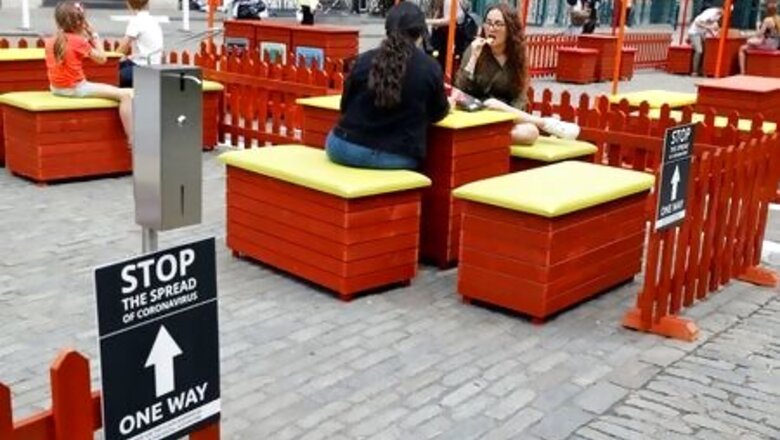
views
LONDON Shopper numbers, or footfall, across all British retail destinations rose 3.8% last week from the previous week, with the start of a state-funded eating out scheme helping evening traffic more than lunchtimes, industry data showed on Monday.
Britain’s retail and hospitality sectors, already struggling with high rents and business taxes, were hit particularly hard by the coronavirus lockdown and thousands of job losses have been announced.
To get the country spending again the 500 million pound ($653 million) “Eat Out to Help Out” scheme offers 50% off the bill for eat-in food and drink – up to 10 pounds per person, excluding alcohol – on Mondays, Tuesdays and Wednesdays in August.
The government hopes the unprecedented subsidy, along with cuts to value-added tax for the hospitality sector, will help to reduce job losses at restaurants, cafes, bars and pubs, which employ 1.8 million people.
Official data published last month showed that UK retail sales excluding fuel were back to year-ago levels in June, but the recovery was driven by a boom in online shopping and extra spending at supermarkets as people ate out less.
Market researcher Springboard said that footfall rose 4.5% in UK shopping streets in the week to Aug. 8 compared with the previous week. It was up 3.3% in retail parks and up 3% in shopping centres.
Between Monday and Wednesday, during the Eat Out to Help Out scheme, footfall rose in retail destinations across the United Kingdom by 18.9% after 6pm, versus a rise of 9.6% at lunchtime (12pm to 2pm).
“The jury is still out regarding the benefit of the Eat Out to Help Out scheme,” said Springboard director Diane Wehrle.
“Although there were rises in footfall on each day between Monday and Wednesday from the week before, it is clear that it was the post 6pm period that yielded the greatest rise in footfall and also that smaller towns benefited more than large city centres.”
Springboard said that footfall across all UK retail destinations remained more than a third lower than in 2019, with a year-on-year decline of 34%.
Disclaimer: This post has been auto-published from an agency feed without any modifications to the text and has not been reviewed by an editor



















Comments
0 comment